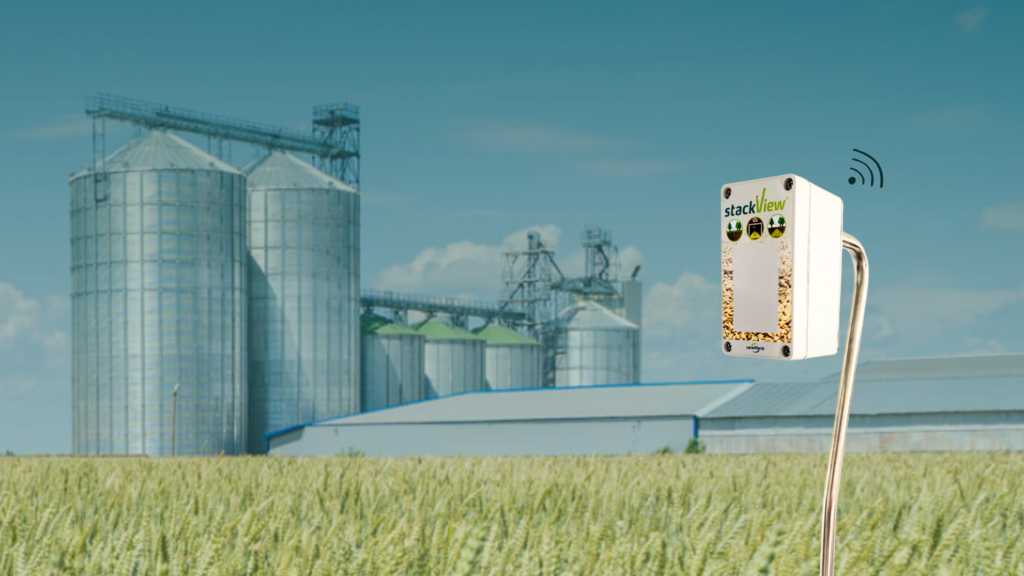How to prevent loss and damage when storing biofuels
Storing biofuels such as wood pellets and wood chips requires careful monitoring and proper handling to maintain their quality. Losses during storage often occur due to humidity, temperature fluctuations, and insufficient ventilation, which can lead to mold growth and quality degradation. To avoid these issues, it is crucial to measure storage conditions and conduct continuous monitoring.

The Biggest Challenges in Storing Biofuels
Biofuels are particularly sensitive to humidity, which can penetrate during storage and increase the weight of the materials. This not only reduces their calorific value but also fosters mold and bacterial growth. Sudden temperature changes can cause condensation, further compromising the materials' quality. Without adequate ventilation, heat buildup can occur in large piles, increasing the risk of self-ignition or material degradation. When precise and regular measurements of storage conditions are not conducted, potential problems can go unnoticed and lead to significant losses.
How to Minimize Storage Losses
To minimize losses and preserve the quality of biofuels, it is essential to begin by controlling the moisture levels before storage. Wood pellets should have a moisture content of 6–8%, while wood chips typically range between 30–55%, depending on usage and storage conditions.
The storage area should be kept dry and well-ventilated, with a system ensuring stable air circulation and effective removal of humidity. Proper ventilation prevents both heat buildup and condensation, which can otherwise damage the materials’ quality. Additionally, dividing biofuels into smaller piles can help reduce the risk of heat buildup and make it easier to measure and monitor conditions.
How StackView Helps Maintain the Quality of Your Biofuels
By using digital solutions such as StackView, you can effectively monitor the temperature and humidity of your wood pellets and wood chips 24/7. Integrated with the Care4Farm platform, StackView enables continuous measurement of conditions and sends real-time data accessible via PC, tablet, or mobile phone.
If temperature or humidity exceeds critical thresholds, an alert is sent, allowing you to react quickly and protect your biofuels. Furthermore, you can analyze historical data to identify trends and improve storage management. By optimizing storage conditions and reducing waste, StackView ensures that your biofuels retain their quality throughout the storage period.
Advantages of StackView
- Antenna: A powerful antenna ensures connectivity everywhere, giving you access to your data no matter your location.
- Automatic Measurements: Temperature and humidity are continuously logged, providing accurate data.
- Time and Resource Savings: Digital monitoring minimizes the need for manual checks.
- Real-Time Alerts: The system sends alarms when values exceed critical thresholds, enabling quick responses.
- Robust and Waterproof Electronics: With up to 10 years of battery life, StackView is designed to last without frequent battery replacement. Its robust and waterproof electronics withstand most environmental challenges.
The Care4Farm Platform
StackView integrates seamlessly with the Care4Farm platform, accessible on PC, tablet, and mobile. The platform offers:
- Historical Data and Analysis: Use data logging to identify patterns and optimize storage management.
- Real-Time Tracking: Improves drying and cooling processes, reducing waste.
- Efficient Data Sharing: Enables collaboration with colleagues or partners through easy information sharing.
- 24/7 Support: Always-available support ensures you can quickly start using the product.
Product features
Included: StackView including antenna, battery, SIM card, software updates, data storage, and support
Length: 1500 mm
Material: Stainless steel
Suitable for crops: Barley, Beans, Canola, Corn, Grain, Hay, Lentils, Oats, Other, Peas, Rice, Rye, Silage, Soybeans, Wheat, and Hay
Suitable for organic farming: Yes
Surface treatment: Polished
Temperature range: -40 – +120 °C
Accuracy: +/- 2°
Weight: 1 kg

Discover more



